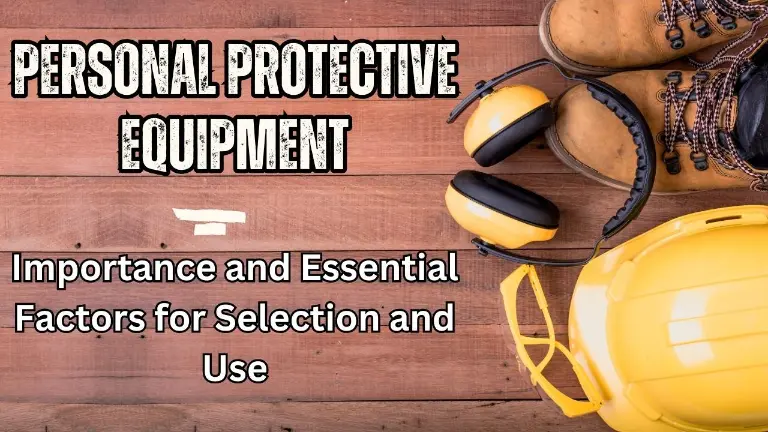Welcome to the General Safety subpage of our Safety section. This page is designed to provide you with a comprehensive understanding of general safety principles and practices that are crucial in various environments.
Whether you are a seasoned HSE professional or someone new to the concept of safety, this page will serve as a valuable resource for learning about essential safety rules, terms, and definitions. Additionally, you’ll find links to detailed blog posts covering a wide range of relevant topics.
Table of Contents
Toggle1. Overview of General Safety:
General safety encompasses a broad spectrum of practices and guidelines aimed at preventing accidents and injuries in the workplace and beyond. By adhering to these principles, organizations can create a safer environment for everyone involved.
This subpage offers a snapshot of the key elements of general safety and provides links to in-depth articles on each topic.
2. Why General Safety is Important?
2.1 Prevention of Accidents:
General safety practices help in identifying and mitigating risks, thus preventing accidents and injuries.
2.2 Health and Well-being:
Ensuring safety at the workplace contributes to the overall health and well-being of employees.
2.3 Regulatory Compliance:
Adhering to safety standards and regulations helps organizations avoid legal issues and fines.
2.4 Productivity and Morale:
A safe working environment boosts employee morale and productivity, leading to better overall performance.
3. What to Expect From This General Safety Subpage?
On this subpage, you will find a series of informative blog posts that cover various aspects of general safety. Each post is crafted to provide you with practical insights and actionable tips to enhance safety in your environment.
4. Series of Blog Posts:
Safety rules are the backbone of any safety program. This blog post covers:
- Essential Safety Rules: Key safety rules that should be implemented in every workplace.
- Creating a Safety Rulebook: Steps to develop a comprehensive safety rulebook for your organization.
- Enforcing Safety Rules: Effective strategies for ensuring that safety rules are followed by all employees.
4.2 General Safety Terms & HSE Definitions: Understanding the Language of Safety
Familiarity with common safety terms is crucial for effective communication and implementation of safety practices. This post includes:
- Glossary of Safety Terms: A comprehensive glossary of commonly used safety terms and their definitions.
- Contextual Examples: Examples of how these terms are used in real-life scenarios to enhance understanding.
- Importance of Terminology: Why knowing these terms is essential for maintaining a safe workplace.
4.3 Personal Protective Equipment (PPE): Essential Gear for Safety
PPE is crucial for protecting employees from workplace hazards. This post includes:
- Types of PPE: Detailed descriptions of different types of PPE and their uses.
- Proper Usage and Maintenance: Instructions on how to correctly use and maintain PPE.
- PPE Standards: Overview of the standards and regulations governing PPE.
4.4 Risk Assessment and Management: Identifying and Mitigating Hazards
Effective risk management is key to preventing accidents. This blog post covers:
- Conducting a Risk Assessment: Steps to perform a thorough risk assessment in your workplace.
- Risk Management Strategies: Techniques to manage and mitigate identified risks.
- Case Studies: Examples of successful risk management practices in various industries.
4.5 Safety Management: Strategies for a Safer Workplace
Effective safety management is essential for preventing accidents and ensuring compliance. This blog post explores:
- Safety Management Systems (SMS): Overview of SMS and their role in maintaining workplace safety.
- Developing Safety Policies: Steps to create effective safety policies and procedures.
- Leadership and Safety Culture: The importance of leadership in fostering a culture of safety.
4.6 Developing a Safety Culture: Steps to Foster a Safe Working Environment
Creating a safety culture is about more than just rules and regulations. This post explores:
- What is a Safety Culture?: Understanding the concept of safety culture and its importance.
- Steps to Develop a Safety Culture: Practical steps to foster a culture of safety within your organization.
- Benefits of a Safety Culture: How a strong safety culture can lead to a safer, more productive workplace.
5. Join the Conversation:
Safety is an ongoing process that thrives on shared knowledge and experiences. We encourage you to read our blog posts, share your insights, and participate in discussions. Your contributions can help others learn and improve their safety practices.
6. Stay Informed:
Staying up-to-date with the latest safety practices, regulations, and technologies is essential for maintaining a safe environment. Be sure to check back regularly for new blog posts and updates. Follow us on social media to stay connected and never miss an update
Stay connected with us through our social media channels and never miss an update. Follow us on :
To continue reading exciting blogs on various safety topics, please do not forget to visit our webpage Safety.




